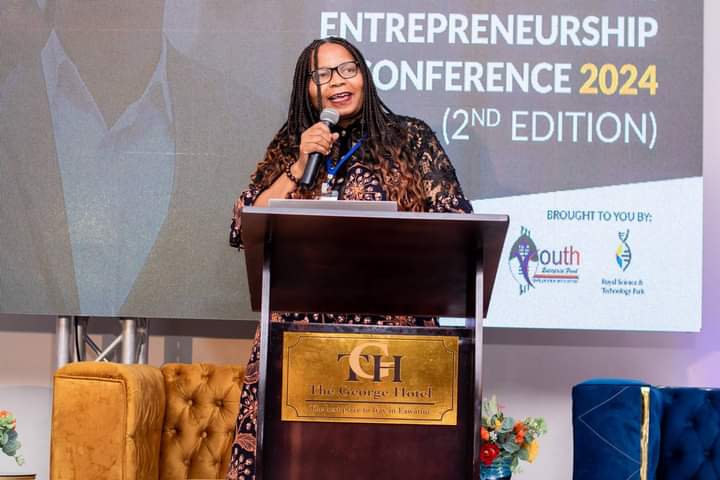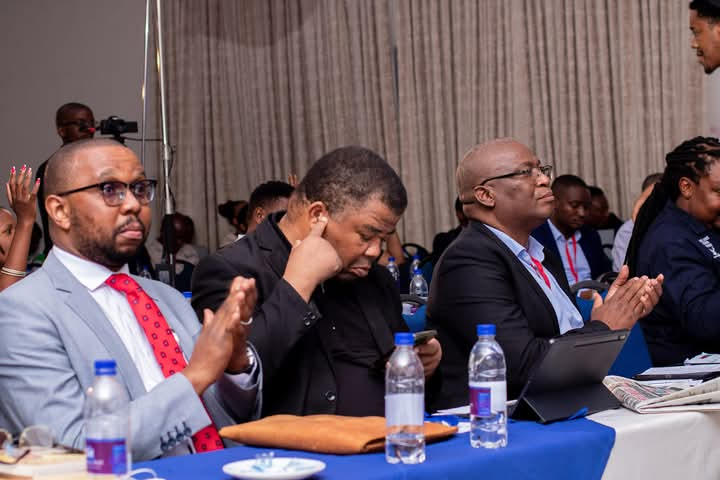
By Phiwa Sikhondze
The Minister of Sports, Culture, and Youth Affairs, Bongani Nzima, has called on the youth of Eswatini to embrace innovation and entrepreneurship as tools to drive economic growth and social transformation.
Nzima made these remarks during the second Umliba Youth Entrepreneurship Conference at The George Hotel, Manzini, on 22 November 2024.
The Minister emphasized the role of the youth in shaping the nation’s future. He highlighted the conference theme, “Tech Entrepreneurship Beyond the Horizon,” as a reflection of the boundless opportunities awaiting those who leverage technology for economic and societal growth.
“This conference is more than just a meeting of youth entrepreneurs; it is a catalyst for innovation, a Launchpad for collaboration, and a space where ideas are transformed into impactful ventures,” Nzima said.
Nzima reassured the youth of the government’s commitment to supporting their entrepreneurial aspirations through initiatives such as the Youth Enterprise Revolving Fund (YERF). He encouraged them to take advantage of the policies and programs designed to empower young people and transform Eswatini into a hub of innovation and economic prosperity.
“The future is yours to define. Look at today’s challenges as opportunities to innovate, grow, and lead,” Nzima urged.
Hosted by the Youth Enterprise Revolving Fund in partnership with the Royal Science and Technology Park (RSTP), the conference coincided with Global Entrepreneurship Week. It attracted a diverse audience of speakers, youth entrepreneurs, and stakeholders in the technology and innovation sectors.
Savannah Maziya, the Minister of Information, Communication, and Technology, represented by Dr. Rejoice Maseko, also addressed the conference, lauding the initiative as a critical step towards creating a conducive environment for youth-driven innovation.
Maziya highlighted the importance of fostering partnerships among ecosystem players to build a robust entrepreneurial ecosystem in Eswatini.
“We need to learn from other countries like Rwanda, which is pioneering the Kigali Innovation City, and collaborate with potential investors to build credibility,” she said.
Maziya also emphasized the need to prioritize the development of a national innovation strategy and explore opportunities in sectors like fintech, energy, and health tech to position Eswatini as a global player in technology and entrepreneurship.
Both ministers underscored the role of technology in transforming various sectors, including sports and culture, by connecting local talent to global platforms and creating innovative solutions. Nzima painted a vision of Eswatini as a leader in sports and cultural entrepreneurship, leveraging technology to create sustainable opportunities for the youth.
“Imagine the possibilities: technology connecting young athletes with global teams, AI predicting trends in our cultural industries, and creative solutions turning Eswatini into a leader in sports and cultural entrepreneurship,” Nzima remarked.
Maziya, on the other hand, challenged the youth to adopt a global success mindset, urging them to move from job-seeking to job creation. She reminded attendees of the Prime Minister’s recent unveiling of the Nkwe policy statement, which outlines a transformative agenda for Eswatini’s economy.

“The culture of creating our home-grown solutions and embracing the mindset of thinking big is embedded in our Policy Statement,” Maziya noted.
The conference also served as a platform for youth entrepreneurs to showcase their ventures, network with investors, and participate in discussions on the tech entrepreneurial landscape.
Maziya commended the resilience of Africa’s startup ecosystems, which are increasingly attracting significant funding, particularly in energy and health tech. She called for more research to identify gaps in Eswatini’s entrepreneurial ecosystem and align efforts with the Global Innovation Index.